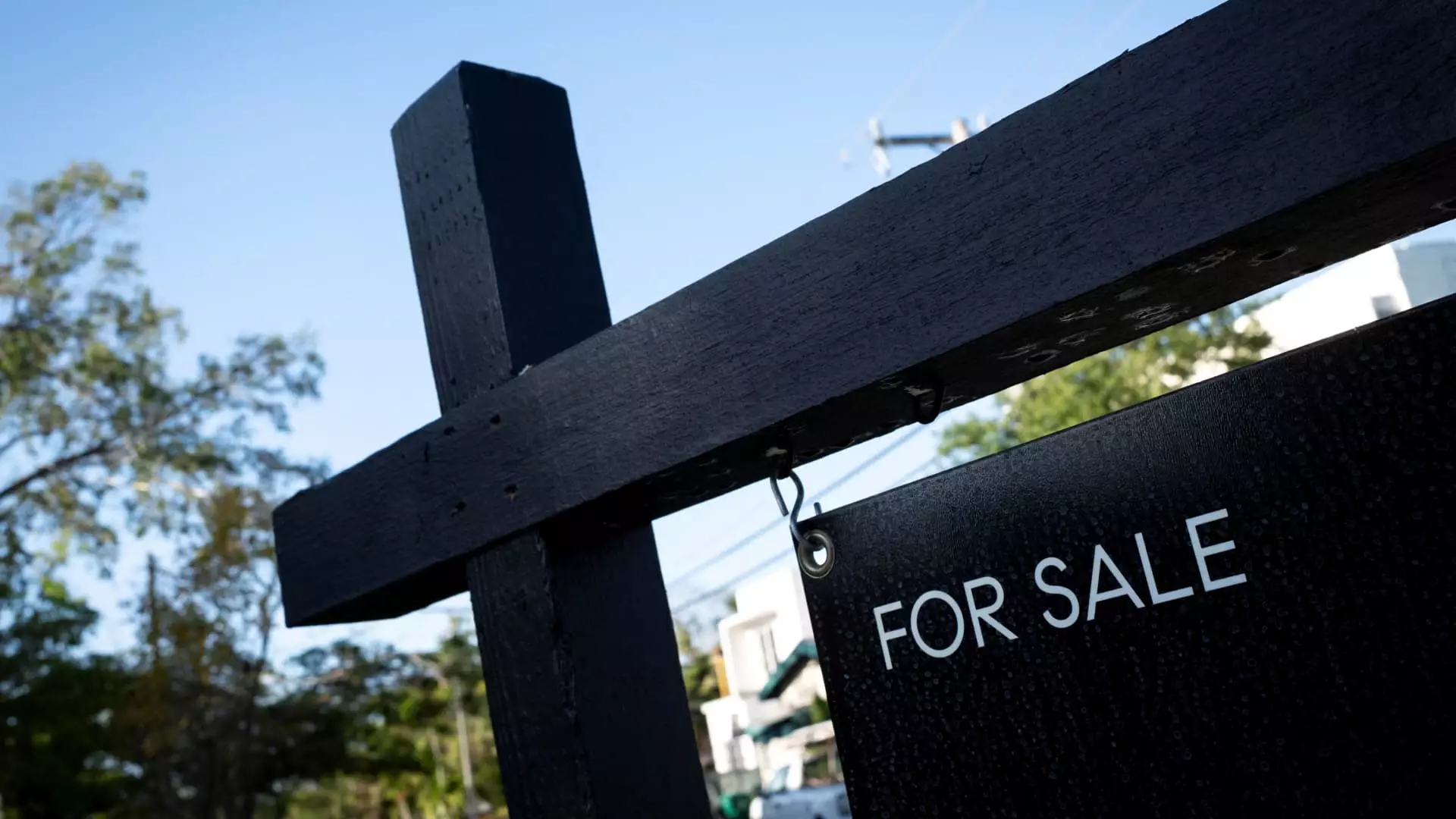The financial landscape is experiencing a seismic shift that has many prospective homebuyers feeling uneasy. Recent statistics reveal a staggering 12.7% drop in mortgage application volumes, a trend largely attributed to soaring interest rates and widespread economic uncertainty. The Mortgage Bankers Association reported a climb in the average interest rate for 30-year fixed-rate mortgages to 6.90%, the highest rate we’ve seen in two months. This abrupt spike poses a significant barrier for those looking to buy homes or refinance existing mortgages. While interest rates are inherently subject to fluctuation, the relentless upward trajectory begs the question: what will be the long-term repercussions for the housing market?
Refinancing in Crisis
The implications of rising rates extend beyond new home purchases; they severely impact refinancing activities as well. Last week, the demand for refinancing fell by an eye-watering 20%, even as it remained 43% higher compared to the same week last year. The refinancing share of total mortgage applications plummeted from 41.3% to 37.3%, revealing a sharp divide in financial stability for many homeowners. Those who previously would have embraced refinancing as a strategic financial move are now hesitating, caught in a limbo that feels more precarious by the day. Rising costs may force homeowners to remain shackled to less-than-favorable terms, locking them into financial stress.
The Unyielding Grip of Home Prices
In tandem with increasing interest rates, home prices continue to trend upward, eliciting a collective sigh of dismay from potential buyers. The pursuit of affordable housing seems more elusive than ever, as an emotional clash ensues for cash-strapped buyers weary of pouring their savings into increasingly unaffordable properties. Adding fuel to the fire, a recent nosedive in the stock market has led many individuals to think twice about liquidating their investments to fund a down payment. Thus, fears of economic instability pair with rising property costs to create a suffocating atmosphere for buyers.
The Emotional Toll of Economic Uncertainty
This overwhelming climate of uncertainty is not merely a financial issue; it warrants emotional consideration as well. As Joel Kan, the deputy chief economist at the MBA, noted, this precarious environment poses real psychological barriers for those in the housing market. Anxiety and hesitance dominate the mindset of potential homebuyers, rendering them reluctant to make decisions under the cloud of such volatility. The emotional weight could lead to further stagnation in the market, perpetuating a cycle of uncertainty that becomes engrained in the psyche of consumers.
Future Considerations
With multiple exogenous factors converging to create an atmosphere of worry, the outlook for the housing market hangs in a delicate balance. Will policymakers be compelled to intervene with measures to stabilize interest rates, or will market forces dictate the terms of this relentless economic upheaval? As the dust settles, one thing is clear: the current landscape presents formidable hurdles not only for first-time homebuyers but also for seasoned homeowners grappling with refinancing opportunities. The future of the mortgage market is fraught with challenges, leaving everyone from potential buyers to economic analysts pondering the unsettling question: where do we go from here?

